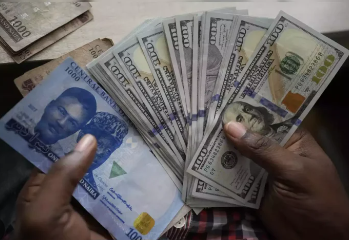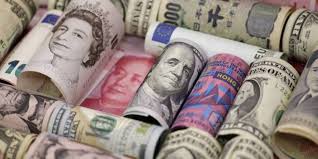…as naira crashes further
By Odunewu Segun
The Central Bank of Nigeria has said that interest rate cut alone would not help to pull the economy out of recession amidst rising inflation.
Director, Monetary Policy, CBN, Mr. Moses Tule, stated this recently during an interview. He said policymakers would need to act together on fiscal, monetary and trade policies to jump-start economic growth.
“It’s not sufficient for the monetary policy committee to just meet and say we are reducing interest rates to address a stagflation. In a situation where we have negative interest rates, what we have to do is to overcome negative interest rates.”
He said Nigeria’s policy rate had been stuck at six per cent in the past but it didn’t spur credit growth, because the banking system did not respond to the move.
Tule explained that inflation was rising not due to excess money supply, but because of recent reforms, which included a hike in electricity tariffs, fuel price and a currency float that led to a 30 per cent drop in the value of the naira in one day.
ALSO SEE: CBN plans BVN registration on Other Financial Institutions to check fraud
Meanwhile, Nigeria’s currency, the naira tumbled further on Wednesday against the dollar, exchanging for N428, down from N424 it exchanged against the dollar on Tuesday.
At the interbank official market, the local currency also dropped to N310.08 on Wednesday, down from N307.25 on Tuesday.
This latest decline came a day after the Central Bank of Nigeria’s Monetary Policy Committee against all odds retained the benchmark lending rate at 14 per cent despite calls for it review.
According to Kunle Ezun, a currency analyst at EcoBank, the developments in the official and parallel markets are a reflection of the usual pressure on the naira. “It has nothing to do with the MPC’s decision to leave the interest rate unchanged. We would have seen a major decline in the naira if the committee had announced a rate cut.”
“We can see that the dollar-naira exchange rate has been stable over time now. It is partly because the CBN has been able to meet its futures obligations. It has brought some relative calmness to the market. Again, the demand for forex by players in the oil and gas sector has been taken from the interbank market. This has also brought calmness to that market,” he added.

 Entertainment5 days ago
Entertainment5 days ago
 Health1 week ago
Health1 week ago
 Health4 days ago
Health4 days ago
 Football1 week ago
Football1 week ago
 Football1 week ago
Football1 week ago
 Crime4 days ago
Crime4 days ago
 Crime1 week ago
Crime1 week ago
 Education6 days ago
Education6 days ago













